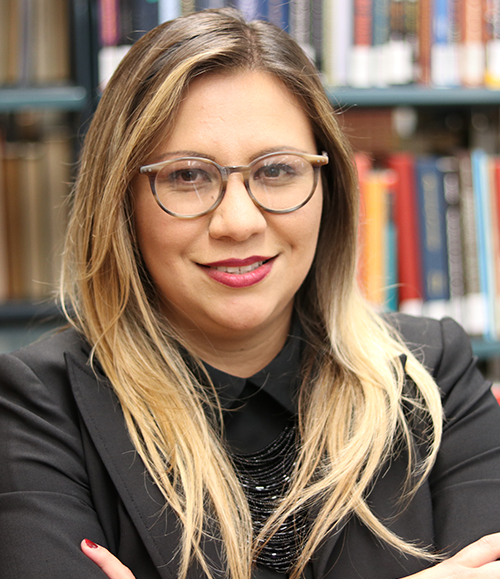CLS Research Spotlight: Deyanira Nevarez Martinez
April 15, 2024 - Karessa Weir
Deyanira Nevarez Martinez grew up in migrant camps in California, the daughter of farm workers who travelled between Arizona and California with the seasons. This gave her first hand knowledge of the conditions of migrant camps.
 Now assistant professor of Urban & Regional Planning and core faculty in Chicano/Latino Studies, Nevarez Martinez has a passion for studying the ways these migrant camps have changed and evolved – in many ways making it harder for families to work and find suitable housing.
Now assistant professor of Urban & Regional Planning and core faculty in Chicano/Latino Studies, Nevarez Martinez has a passion for studying the ways these migrant camps have changed and evolved – in many ways making it harder for families to work and find suitable housing.
“Everyone in the migrant camps were farm-working families – parents and children – and there was a camp next door for men who were single. That is how it worked across all the large migrant routes throughout the U.S.,” she said. “I was a kid back in the ‘90s and it was work done by the entire family. But it is that family housing that has changed a lot in the last couple of decades.”
Farm owners who hire migrant workers realized they could spend less money and get more consistent labor if they only offered housing to single men, Nevarez Martinez said. The camps are now using H-2A workers – a U.S. Citizenship and Immigration designation for temporary agricultural workers.
“These are mostly single men and a farmer, even though he has to pay H-2A workers more than they pay typical farm workers, can fit 10 workers in one unit rather than having to take one unit for a family,” she said. “When you have a family in a unit, you may be able to get two or three workers because you’ll have the parents and maybe the oldest kid. But let’s say one of the younger children gets sick, you lose one of your workers because the mom has to stay home and take them to the doctor.”
Because of the change, migrant working families have been pushed out of the migrant camps and into the private housing market, which is currently very expensive with little availability in some regions.
“They are ending up in substandard housing with children and having to pay lots of money in rent, and sometimes they have overcrowding conditions because the rent is so expensive, you have two farm working families in one unit,” she said.
It also cuts into the time that the families can work in the fields because it can take two weeks or more to find appropriate housing each time they move to a new location.
“Often they will end up in a hotel, or if nothing can be found, they have to turn around and go back to where they were previously,” she said. “Some families end up paying two rents so they will still have a place to go back to in the winter.”
Within the Latinx community, homelessness is generally dealt with by doubling up with family members who are housed, she said. If you know a family member who is losing their home, others will take them in before letting them live in a car or at a shelter.
“But then you end up in a one-bedroom apartment with 20 people and that’s not sanitary,” she said. “We saw, especially during Covid, that our community was especially hit hard and that had to do with a lot of them being front-line workers and living in small spaces. So when one person gets Covid, everyone is going to get Covid.”
Nevarez Martinez hopes that her research can help inform public policy at a state level. She has been working with the Michigan Department of Agriculture and Rural Development (MDARD) and their migrant labor housing program, which inspects and licenses migrant camps in the state. The standards in Michigan haven’t been updated since 1989 so Nevarez Martinez and MDARD staff are planning to survey folks who live in the camps and figure out what updates need to be made to the standards on the state level. This research, undertaken in collaboration with undergraduate student Vivian Morales, received the College of Social Science Women’s Leadership Institute’s Tomlanovich-Dimond Research Exploration Fund last summer.
It is important to Nevarez Martinez personally and professionally that she works within the Chicano/Latino community and continues to contribute to Chicano/Latino Studies.
“Being theoretically informed by the work that I did getting a graduate certificate in Chicano/Latino Studies is really important to me,” she said. “It is important to know how to work within the community, to make sure we are being ethical and taking care of the community while we are doing our research. So, I write my articles, but I also try to do reports to impact policy and try to give people a benefit from the work I do.”
“I really dislike when people say ‘oh, I’m trying to give people a voice because they don’t have a voice,’” she said. “They have a voice, they are using it, you just aren’t listening. So what I’ve tried to do with my research is to give people a microphone or a megaphone and use my position to amplify what folks are saying.”

